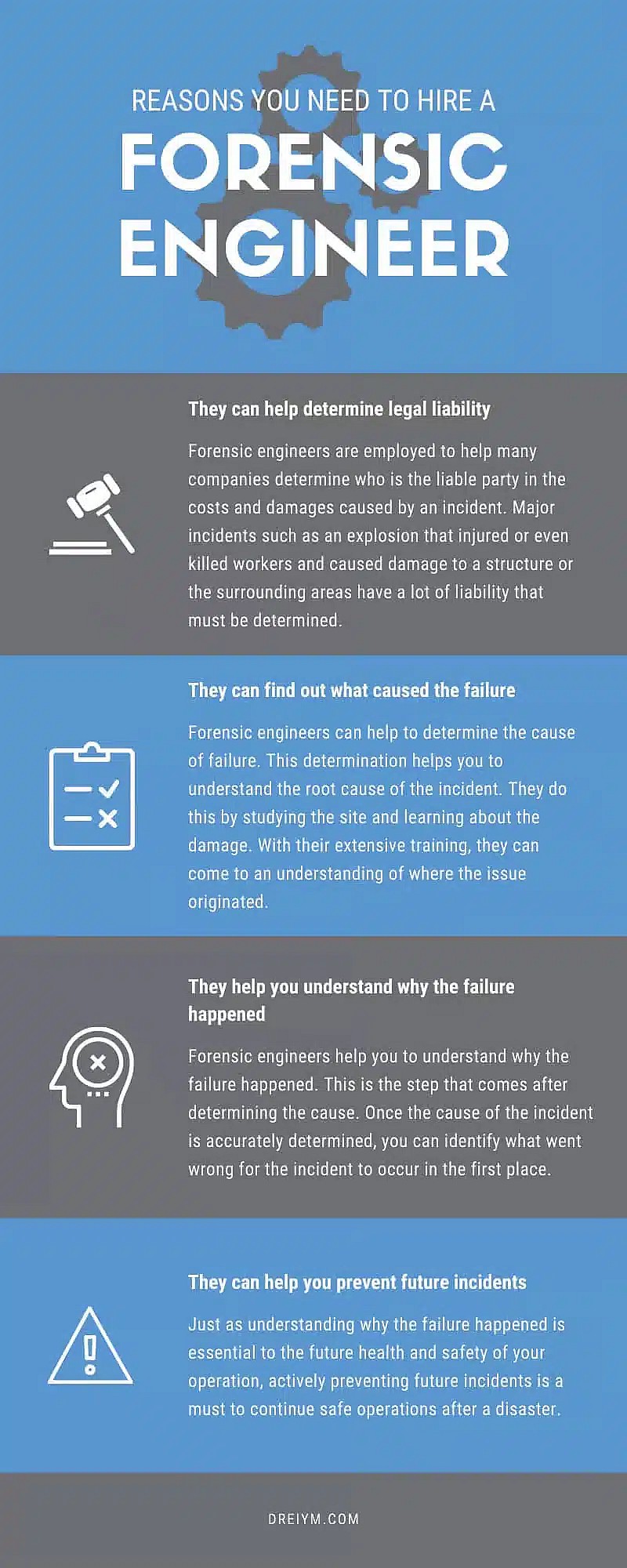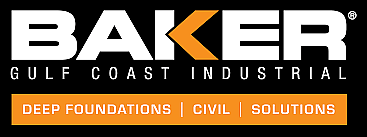Reasons You Need to Hire a Forensic Engineer
A forensic engineer is well-trained in many different issues, making them a great asset to most companies for forensic engineering investigations. You typically need to hire a forensic engineer once something on a project or in a business has failed. Their job is to figure out the cause of the failure. This could benefit anything from car accidents to machine failures, and even explosions or fires. A forensic engineer has many purposes in a company. They can help to determine who is legally liable for the costs, repairs, and other damages that occur in an incident. They also are responsible for determining the cause of the failure, the root cause, and even helping to prevent similar future issues within your company or job site. Many industries can benefit from hiring a forensic engineer. Read on to learn more about reasons you need to hire a forensic engineer and what they can do for your business.
They can help determine legal liability
With advanced degrees in engineering and professional engineering licenses, Forensic engineers are employed to help many companies determine who is the liable party in the costs and damages caused by an incident. Major incidents such as an explosion that injured or even killed workers and caused damage to a structure or the surrounding areas have a lot of liability that must be determined. A forensic engineer can bring clarity about which party is responsible for the disaster and who must pay for the costs of repair and other damages. This extends to less disastrous failures as well, such as an automobile accident that caused no injuries but did, however, cause extreme damage to one or more cars. In cases like this, forensic engineers can determine who is legally liable for the damages and costs of repair or replacement. Working quickly after an event, forensic engineers collect notes, photographs, and physical evidence. That material is then stored securely and kept to support future reports on the incident.
Determining liability is essential, as many accidents and incidents can be very costly. An example of this is in a residential home fire. The family wants answers quickly as they were most likely forced out of their home and are in a temporary residence. The damage fire can have on the structure of the building, and the mold growth from the water pressure used to stomp out the fire can render even a home with minor fire damage uninhabitable for months, years, or even permanently. Insurance companies are often the party responsible for these costs. In these situations, insurance companies can greatly benefit from the aid of a forensic engineer, as they can determine fault, which in some cases can lessen or exonerate the insurance company’s liability in the incident. This also applies to other issues and incidents.
They can help with Product Liability
Understanding Product Liability
Product liability refers to the legal responsibility that a manufacturer, distributor, or seller of a product has for any harm caused by that product. It is a crucial aspect of consumer protection, ensuring that companies are held accountable for any defects in their products that cause injury or damage to individuals or property.
There are several types of product liability, ranging from design defects to manufacturing defects and failures to provide adequate warnings or instructions. In order to understand product liability and how it affects consumers and businesses, it is important to examine these different types and their potential consequences.
Types and Examples of Product Liability
Design Defects
Design defects occur when a product is inherently dangerous due to its design. This means that the product was manufactured according to the intended design, but the design itself is flawed and poses a risk of harm to users. Examples of design defects include cars that are prone to rolling over, toys with small parts that can be swallowed by young children, and medication that causes unintended side effects.
Manufacturing Defects
Manufacturing defects occur during the production process and are not part of the intended design. These defects can occur due to faulty materials, poor workmanship, or other issues in the manufacturing process. Examples of manufacturing defects include a batch of medication that was contaminated during production, a car with a faulty brake system, or a defective electronic device that causes injury or property damage.
Failure to Warn or Inadequate Instructions
Sometimes, a product is not inherently dangerous, but it becomes dangerous if not used in a specific way. In these cases, it is the responsibility of the manufacturer to provide adequate warnings and instructions to prevent harm. Failure to do so can result in product liability claims. Examples of failure to warn or inadequate instructions include prescription drugs that do not provide sufficient warnings about potential side effects, power tools that do not instruct users on proper safety procedures, or cleaning products that can be harmful if used improperly.
Product liability is an important aspect of consumer protection that holds companies accountable for any harm caused by their products. Understanding the different types of product liability is crucial for businesses and consumers, as it can help prevent injuries and damage while ensuring that those responsible are held accountable. By recognizing and addressing product liability issues, we can create a safer and more accountable marketplace for all.
They can find out what caused the failure
Forensic engineers can help to determine the cause of failure. This determination helps you to understand the root cause of the incident. They do this by studying the site and learning about the damage. With their extensive training, they can come to an understanding of where the issue originated. The root cause of the issue is key to identify, as it traces the problem back to the location and item that malfunctioned in the first place. Determining the cause of the failure or incident is helpful for insurance and litigation purposes.
Discovering the cause of the issue is helpful for insurance because it helps determine the legal liability. This can switch the liability from the insurance company to another party. Many insurance companies regularly hire a trusted forensic engineer to work on their more complicated cases. This helps insurance companies only to be held responsible for the exact terms they agreed upon before the incident.
Another reason why many companies also hire forensic engineers is to help with litigations. Forensic engineers are a great asset to multiple companies across many industries, such as pipeline, manufacturing, construction, distribution, transportation, etc. A forensic analysis helps to document evidence of cause, and a forensic engineer can even serve as an expert witness in complex court cases.
Your company may benefit from the services of a forensic engineer if you’ve ever been or currently are in a battle over liability or a court case due to an incident.
They help you understand why the failure happened
Forensic engineers help you to understand why the failure happened. This is the step that comes after determining the cause. Once the cause of the incident is accurately determined, you can identify what went wrong for the incident to occur in the first place. A visualization of this difference is that the cause of a warehouse fire may have been the circuit breaker, but the understanding of why it happened would be a look into the exact type of malfunction the breaker experienced to cause the fire, one option being faulty wiring. So, while the root cause is a circuit breaker malfunction, this was initially caused by faulty wiring. Therefore, the fault falls on the initial wiring of the warehouse. This would be traced back to the builder, the electrician, or the current warehouse owner, depending on the contracts.
Understanding why the failure occurred is important for the future of your company. You want to be able to understand the cause and feel confident that it will not happen again for the sake of your workers and your company as a whole. Understanding why the failure initially occurred is essential to ensuring a safe future for your company.
They can help you prevent future incidents
Just as understanding why the failure happened is essential to the future health and safety of your operation, actively preventing future incidents is a must to continue safe operations after a disaster. Forensic engineers don’t stop working with you once fault is determined, and they typically go above and beyond because their main goal is the safety of your operation. They can help to determine the cause, root cause, and possible solutions to preventing the issue from ever happening again. They can also work with you and your business to find a consultant to help prevent any similar future issues.
At Dreiym Engineering, we employ forensic consultants, corrosion engineers, NACE-certified electrical engineers, and other specialists who all work together to protect your business, your employees, your clients, and your future. For all of your forensic engineering needs, contact us today for a quote on our services and to discuss how we can be of service to your business specifically. Our forensic engineers can even be called upon as expert witnesses in complicated court cases if necessary.
Types of Forensic Engineers & Specialists
Forensic Electrical Engineers – Specializing in electrical failures, electric vehicles, shocks, electrocutions, corrosion failures, and fires.
Forensic Structural Engineers – Specializing in large structural projects, parking garage structures, and large-scale civil projects.
Forensic Mechanical Engineers – Specializing in oil/gas, process piping, and gasoline vehicles.
Forensic Civil Engineers – Specializing in residential, commercial, water/wastewater, and other small-scale civil projects.
Forensic Chemical Engineers – Specializing in chemical processes, spill cleanup, and spill plume measurements/estimations.
Fire Investigators – Trained to NFPA 1033 and NFPA 921; these specialists focus on fire pattern analysis, cause, and origin, potential subrogation and evidence collection.
Experience
Dreiym’s engineers have years of experience across many different engineering and investigatory disciplines. Contact us to get a copy of any CVs, and discuss prior experience with similar matters.













































